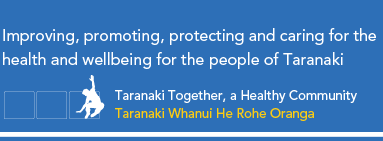Last chance for free flu immunisation

3 July 2013
Taranaki DHB residents eligible for free influenza immunisation have less than a month left to be vaccinated before the Government-subsidised campaign ends for this year on July 31.
“We’ve had a record-breaking season with around 1.24 million people already vaccinated this year. Approximately 640,000 of those eligible for free vaccination have taken up the offer so far, an increase on the previous year’s uptake. Many vulnerable people are, however, still unprotected, and this is a concern as we head into flu season,” comments Dr Lance Jennings, a virologist and spokesperson for the National Influenza Specialist Group (NISG)1.
“People, especially those at greatest risk from flu complications or those in contact with people who are at high risk from flu, should be immunised as soon as possible. Influenza cases traditionally begin to rise sharply at this time of year and it can take up to two weeks to develop protection after vaccination.”
Influenza vaccinations are free from a doctor or nurse for New Zealanders until the end of July if you are in one of these groups:
- People aged 65 and over
- Anyone under 65 years of age (including children) with long-term health conditions such as heart disease, stroke, diabetes, respiratory disease (including asthma), kidney disease and most cancers
- Pregnant women
- Children aged from six months and up to five years of age who have been hospitalised for respiratory illness or have a history of significant respiratory illness.
Anyone who wants to be immunised against influenza after July 31 will have to pay a small charge to get it from their doctor, nurse or in some pharmacies.
Dr Jennings says influenza shouldn’t be confused with common colds or other respiratory viruses often seen at this time of year. Influenza is a serious disease, especially for people with underlying medical conditions. It can make their condition much worse and lead to hospitalisation and even death. Influenza usually has symptoms such as a sudden onset of illness, high fever, headache, a dry cough and illness usually lasts 7-10 days.
He says that three types of influenza virus currently in circulation are covered by the 2013 seasonal influenza vaccine.
“Contrary to a widely-held myth, you cannot get influenza from the vaccine, as it does not contain any live virus. Unfortunately some people may be incubating a common cold when vaccinated and then develop respiratory symptoms due to a non-influenza virus.”
For free health advice, call Healthline 0800 611 116. For advice about influenza immunisation visit www.fightflu.co.nz or text FLU to 515.
Additional information about Influenza
Influenza or ‘flu can be a serious illness – it’s more than a “bad cold”. Anyone can catch it – even the fit and healthy.
Influenza Symptoms |
Cold Symptoms |
Sudden onset of illness. Moderate to severe illness lasting 7-10 days |
Mild illness |
Fever (usually high) |
Mild fever |
Headache (may be severe) |
Mild headache (congested sinuses) |
Dry cough may become moist |
Sometimes a cough |
Muscle aches |
Muscle aches uncommon |
Shivering |
A runny nose |
Bed rest necessary |
|
Can suffer severe complications (e.g. pneumonia) |
|
For more information please call
Sue Carrington
Media Adviser
Ph 021 367 789
1National Influenza Specialist Group (NISG)
NISG was formed in 2000 by the Ministry of Health to increase public awareness of influenza, its seriousness and the importance of immunisation to prevent the disease.
Last updated: Wednesday, July 3, 2013



